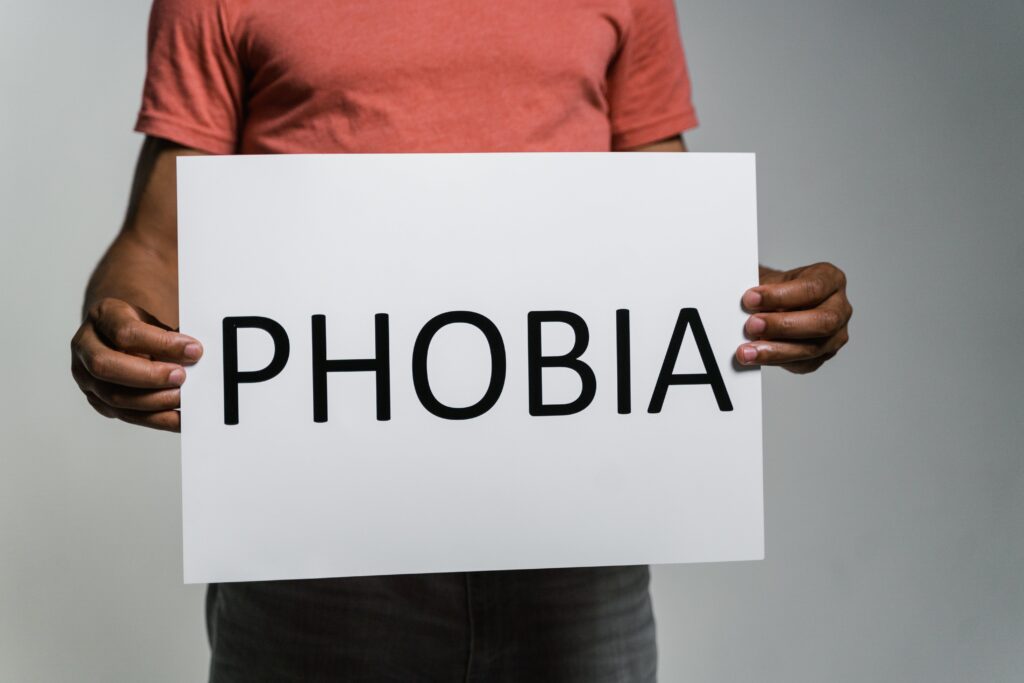Hypegiaphobia is an overwhelming and irrational fear of responsibility. The word hypegiaphobia is sometimes referred to as hypengyophobia, derived from the Greek ‘Hypengyos,’ which means responsible, and ‘Phobos,’ which means fear.
This phobia can trace its roots back to early development. An example might be a parent who is “over parents” not allowing their child to take on responsibilities around the house and tend to do things for them to excess.
It can also be caused by a past incident when they took responsibility and suffered some unpleasant consequence, which makes the individual adverse to taking on responsibility again. Further, the addiction literature is replete with referrals to people with addiction as “children” or “dependent.”
Behavior of People with Hypegiaphobia

People with hypegiaphobia sometimes feel overwhelmed by the pressure of fulfilling responsibilities. It can impact various aspects of life, including work, relationships, and personal growth.
Most of us learned at that stage of life with privileges come responsibilities. We learn to take on more and more responsibilities as we get older and grow into adulthood. Some people have a complete, overwhelming and irrational fear of responsibility of any kind. These people are said to be suffering from Hypegiaphobia.
These people can be seen to be self-indulgent, selfish and even childish, ignoring all their responsibilities and being damned by consequences. These people are also more inclined to blame others for their actions and will not take responsibility for their part in any mistake made.
Not only does this form the foundation for distorted perceptions from those working with the person, but the person with the addiction/herself looking inward, leading to maladaptive actions and thoughts, chronic conflict with self and others, misinterpretation of relationships, psychic energy fatigue, and complete reliance on others for decision-making.
Hypegiaphobia, which would offer a logical and sound explanation for these referrals and their behavioural ramifications, is rarely and poorly articulated in the literature.
Yet, the fear of taking responsibility for decisions can accelerate the drive to self-medicating with substances. Regressive hypno-psychotherapy can often be useful in determining the cause of hypegiaphobia and knowing that the client can be educated in being able to take on more responsibility in the here and now.
What Causes Hypegiaphobia
Here are some of the main causes of Hypegiaphobia;
1. Past traumatic experiences or failures related to responsibilities.
2. High expectations and fear of disappointing oneself or others.
3. Perfectionism and fear of making mistakes or being judged.
4. Lack of confidence in handling responsibilities effectively.
5. Overwhelming pressure and fear of the consequences of failure.
You have to overcome this fear to embrace responsibility confidently.
Hypegiaphobia Symptoms
-

nothing ahead, pexels, 3375857.jpg
The signs and symptoms of Hypegiaphobia are individual and vary from person to person. Some, when confronted with responsibility, may sweat, feel uncomfortable, nauseated and overwhelmed.
Those who are severely compromised by the condition may experience panic attacks. The symptoms may vary when confronting a responsibility. The symptoms may also skew any cogent responses by the person.
These factors generate an increase in addictive behaviours and substance use. Thus, hypegiaphobia also interferes with the ability to enter recovery and sustain maintenance.
Physical Symptoms of Hypegiaphobia
- Rapid heartbeat
- Shortness of breath
- Sweating
- Trembling or shaking
- Nausea or stomach discomfort
- Dizziness or lightheadedness
- Headaches
- Muscle tension or aches
Psychological Symptoms of Hypegiaphobia
1. Excessive worry or fear of taking on responsibilities.
2. Avoidance of tasks or obligations.
3. Feelings of panic or anxiety when faced with responsibilities.
4. Difficulty concentrating or making decisions.
5. Negative thoughts or self-doubt regarding one’s ability to handle responsibilities.
6. Irritability or restlessness.
7. Sense of helplessness or powerlessness.
8. Impact on self-esteem and self-confidence.
Most cases of Hypengyophobia are self-diagnosed. Many seek talking therapies to help them discover not only the cause but to develop coping mechanisms to help them in daily life.
Hypegiaphobia Lifestyle Changes
1.Making lifestyle changes can be beneficial in managing Hypegiaphobia, helping individuals to cope better with their fear.
2. Prioritise self-care and engage in activities that promote relaxation and stress reduction.
3. Establish a structured routine to create a sense of stability and predictability.
4. Break down responsibilities into smaller, manageable tasks to prevent overwhelm.
5. Practise effective time management and organisation to enhance productivity.
6. Seek support from friends, family, or a therapist to share concerns and seek guidance.
7. Challenge perfectionistic tendencies and embrace the idea of progress over perfection.
8. Engage in regular physical exercise to reduce anxiety and improve overall well-being.
9. Explore relaxation techniques such as deep breathing, meditation, or yoga.
10. Foster a positive mindset by focusing on strengths and achievements.
11. Gradually expose yourself to responsibilities through progressive goal setting and celebrating each accomplishment.
Final Words
Remember, finding the right combination of lifestyle changes may vary for each individual, so it’s important to experiment and tailor them to your specific needs and preferences. Treatment options such as therapy and self-help techniques can help individuals overcome hypegiaphobia and regain control of their responsibilities.




